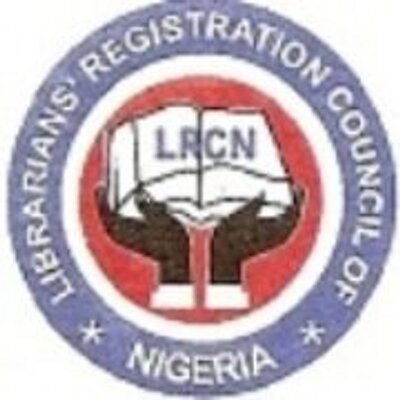As of today, Nigeria has a record of 7,298 certified professional librarians following the induction and certification of 502 librarians on Tuesday in Abuja by the Librarians’ Registration Council of Nigeria (LRCN).
The induction, which is the 12th Batch Induction and 8th Mandatory Conference of Certified Librarians in Nigeria, was tagged ‘Emerging Trends and Technologies in Library and Information Services’.
Speaking at the event, the Acting Registrar/CEO of LRCN, Abdullahi Ja’afaru Wase, said the council is not relenting in its efforts to ensure that only qualified and professionally certified librarians are employed to man libraries.
While noting that the induction is a significant and core mandate of the LRCN, which is to ensure that only qualified librarians, who have been imparted with the skills and knowledge from reputable and accredited institutions are inducted, he said, “we also clamor on the expertise of these professional librarians to continue to adapt to the dynamic tends of the society.”
Wase disclosed that the Minister of Education, Malam Adamu Adamu, had granted permission to the council to begin induction at the point of graduation and three institutions of University of Nigeria Nsukka, University of Jos and Modibbo Adama University of Science and Technology, Yola have indicated readiness to begin the process.
He said the Library and Information Science Curriculum has also been reviewed with new courses introduced to meet the needs of today’s library users, making library service delivery almost all technologically driven and with courses for entrepreneurship.
“Similarly the council, in collaboration with the National Universities Commission (NUC), has reviewed the general Library and Information Science Curriculum for universities,” he said.
In his address, the Commissioner, Ministry of Lands, Housing and Urban Development and Regional Planning, Jigawa, Sagir Musa Ahmed, said the theme is timely as digital technologies continue to assist librarians in bridging the prevailing information provision gaps, and in offering effective and efficient delivery of information service in our various types of libraries.
“The emergence of digital technologies has opened opportunities for librarians to expand beyond their physical spaces and to quickly reach out to many library users irrespective of space and time,” he said.
Ahmed, however, noted that despite advancement in digital technologies such as computer technology, telecommunication, mobile technology services and social media, many librarians in developing countries are still facing difficulties to keep pace with emerging technologies in providing library services.
He said this is due to poor, lack of digital competence, digital technology in their libraries, weak financial commitment by parent organisations to invest in providing digital technologies, lack of political will and poor implementation of digital strategic frameworks in most institutions.
He noted that the newest digital technologies like librarians robots combination with Radio Frequency Identification (RFID) technology data of bibliographic record have challenged librarians to develop skills in information sharing, media literacy, learning ability, communication, digital content creation, digital identification, among others.
He said, “These innovations require knowledge and skills of librarians in providing access to library resources and services effectively. This is because the 21st-century librarians are no longer just the guardians of books; they are information providers in an environment that is constantly changing with the digital technologies in providing information services.”
He, therefore, urged the newly inducted librarians to horn skills in emerging trends and technologies for a prosperous career in library and information service, saying, “The more digital skills you have the better future you have as certified librarians in the era of digital technologies.”
Speaking, the minister, Malam Adamu Adamu said it is essential for librarians to join in exploring ways of reinventing their ideas and services to stay abreast with current realities.
Represented by the director of library services at the ministry, Barnabas Awunandu, Adamu said this can be achieved through sufficiently repurposing library spaces and infrastructure, incorporating virtual and entrepreneurship services and operating from other points of convenience to meet user expectations.
“Considering the crop of vibrant young professionals being inducted today to be added to the existing professionals inducted over the years, I am convinced that an influx of fresh ideas and strategies will be seen in the coming years,” Adamu said.
He said: “Take advantage of the opportunities presented by information and communication technologies to sharpen your skills and capacities for effective service deliveries.”
The Director-General Executive Pharm, of Standards Organisation of Nigeria (SON), Farouk Salim, said the profession, like every other, requires digitalisation and automation to remain relevant from the century-old traditional system of operation and service delivery to clientele and users.
He said despite the conservative fears of library professionals losing their jobs and relevance, it is very clear ICT integration rather brings more challenges and responsibilities to contend with and meet the new demands from users in the libraries.
He said the benefits of Integrating ICT in Library and Information Services include flexible access for reference and research on old and special documents, simultaneous multiple virtual users access for the same documents, improved information sharing through appropriate classification, metadata and information exchange protocols and digital library and that information centres can easily share information with other digital libraries and provide enhanced access to users.

 Join Daily Trust WhatsApp Community For Quick Access To News and Happenings Around You.
Join Daily Trust WhatsApp Community For Quick Access To News and Happenings Around You.


